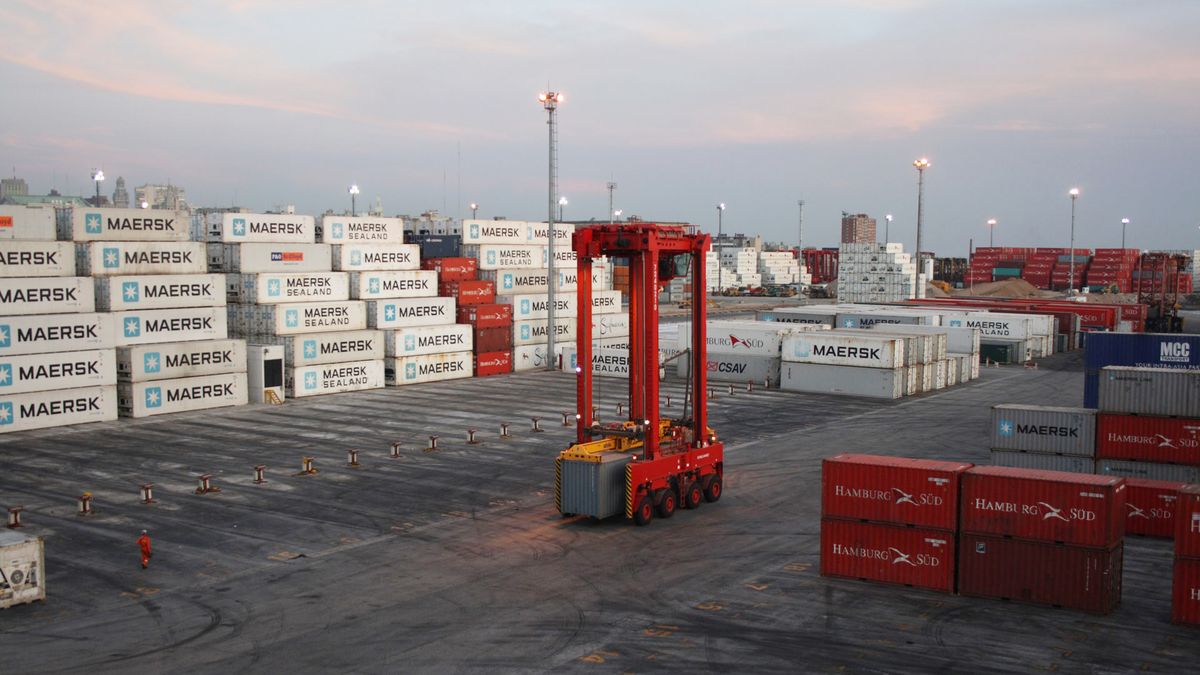the belgian company Katoen Natie, main owner of the Cuenca del Plata Terminal (TCP)responded to the criticisms of the chambers that produce and export Uruguay on the 17% increase in port fees; and accused the Union of Exporters of Uruguay (UEU) of making “a rigged handling of figures”.
The approval of 17% in port rates in TCP aroused controversy among exporters who, in addition to understanding the measure endorsed by the government —which owns 20% of the company through the National Administration of Ports (ANP)— is a covert acknowledgment of the exchange rate delay that the national economy is experiencing —while the Belgian company’s argument for the price increase is the misalignment of the exchange rate—; they must face a new cost on operations in a complex context for Uruguayan exports due to the loss of competitiveness.
In this scenario, Katoen Natie issued a statement in defense of the criticism received by the exporting chambers, mainly the UEU, where he pointed out that the text of the body directed by Facundo Marquez is “clearly designed for the purpose of mislead public opinion”.
Likewise, he maintained that the criticisms are based “on a rigged handling of figures that seek, without much concealment, to promote the corporatist agenda of those who lead that organization today.” “Already on multiple occasions Terminal Cuenca del Plata SA has warned representatives of the UEU about the veracity of the information that this organization makes public and repeatedly in relation to the issue of port fees”, added Katoen Natie.
In this sense, the Belgian company accused that it is “a falsehood” that the costs to export in it Port of Montevideo have become outdated compared to others in the region, something that the Union of Exporters pointed out as a reality, the result of “excessive and unjustified increases that exceeded 300% in dollars between 2013 and 2018”. “The UEU insists on this deception and does so by adding the grievance to TCP SA,” said the majority partner of the company that operates the port of the capital.
“The leadership of the UEU knows very well that the Uruguayan exporters place their products abroad with lower logistics costs than those facing each other in the other ports in the region,” Katoen Natie added in the statement, “because this difference in favor of the Port of Montevideo It is what explains why their container movements increase at the same time that they fall in other regional ports”.
In addition, the company indicated that this is evident because “the rates of TCP SA today continue to be lower than those charged, for identical services, by the company Montecon SA, container operator at the public docks of the Port of Montevideo”, on which the exporters did not comment.
Criticism of the exporting sectors
As of yesterday, the 17% increase in terminal rates began to apply in the Port of Montevideoand criticism from the exporting sectors, already hit by the loss of competitiveness resulting from the exchange rate delay in the country, were not long in coming. The toughest were Union of Exporters of Uruguaywhich stated that TCP’s decision to raise prices “shows a clear monopolistic attitude of the company, in the face of the captive cargo of the Uruguayan foreign trade”, and pointed out that from the extension agreement of the Katoen Natie concession with the Uruguayan State, TCP’s participation in the market went from 40% to 70%.
“Far from materializing new reductions, an increase was announced in 2022 that was not applied due to the claims of the export sector. With this week’s decision, an increase of 17% overall and 13% for exports is confirmed,” said the statement shared by the organization under the command of Facundo Márquez.
Likewise, the UEU indicated that with the tariff increase in question, “the basic terminal cost to export a container via TCP becomes 324 dollars, while in competitive ports such as Rio Grande in Brazil or the one of Saint Anthony of Chili, that cost is 80 dollars. This means that the cost of TCP is four times more expensive”. This argument was one of those refuted in the Katoen Natie statement.
For her part, the rural federation It also joined the criticism of TCP’s increase in port fees, and expressed its “deep concern” through a statement. In the text, they maintain that this decision “seriously aggravates the already deteriorated conditions of the competitiveness of the exporting sectors.
In turn, they point out that these sectors “have been facing a exchange rate delay very severe in a complicated global context and in the midst of one of the most important droughts in recent decades”.
In the letter, dated August 16, it is assured that the Rural Federation “will remain attentive to all actions that affect the competitiveness of the country, and will continue to insist on the consequences that the economic policies implemented by the government will surely have on employment, investment and the future activity of the economy”.
Source: Ambito




